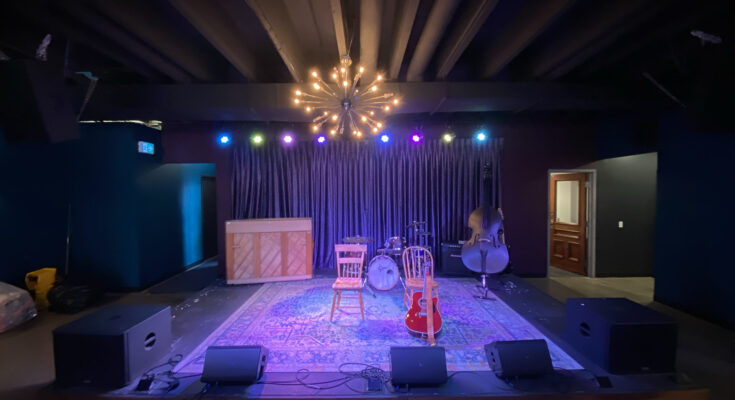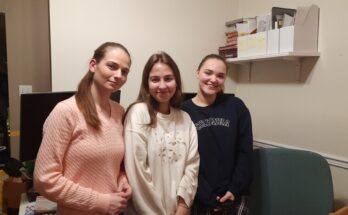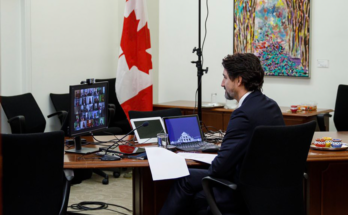By: Liam Baker
For singer Remenkimi, the opportunity to perform live is vital to any musical artist’s career.
The Ottawa-based artist had an unconventional start to her own career, conducting performances over Zoom and live streams, waiting over a year after the release of her debut single to perform live in front of a crowd that was spaced out due to COVID-19 protocols.
After waiting so long to perform her first in-person show, she says nothing compares to the feeling of community that comes with performing live.
“You have to bond with the people in person,” she said. “And from the fans’ perspective, I mean, nothing beats community bonding.”
Throughout the pandemic, music became an integral part of many people’s lives, providing a much-needed escape from the anxiety and turmoil brought on by COVID-19. According to a medically reviewed study conducted by Verywell Mind, an award-winning mental health resource organization, 79 per cent of respondents said they used music during the pandemic to improve their mental health.
As people begin to ease back into some semblance of a post-pandemic reality, Ottawa musicians, venues and politicians said they have realized the importance of music to the re-establishment of Ottawa as a community.
Working side-by-side to bring back and improve live music, they said they hope to bring about a renewed sense of community within the city that may have been lost during the pandemic.
This very sense of community is what allowed the city’s growing music scene to survive throughout the duration of COVID-19. The ability to work together and share resources has been the backbone of Ottawa’s successful music industry, said Geoff Cass, an avid enthusiast and supporter of Ottawa’s music community.
Cass is the owner of Red Bird Live, a live music venue on Bank Street that opened in February. A quaint venue with intimate lighting and comfortable seating, Red Bird Live has the feeling of a classic music bar that often gives space to local acts.
He said the support of local musicians through an eager willingness to perform, along with advice from other live music venues and associations in Ottawa, have greatly contributed to Red Bird Live’s ability to survive in the city’s busy music scene.
“It’s the number 1 thing that has brought success to this place before we even opened,” said Cass.
Cass said internationally-acclaimed artists like Lynn Miles and Jim Bryson have encouraged the local music scene in Ottawa. Both artists used their platforms to help Red Bird Live grow its name recognition within the city’s music community in the venue’s earliest stages, he explained.
Cass said he reached out to other live music venues, such as House of Targ and Irene’s Pub and Restaurant before opening. He said this was to explain who he is, and his mission to complement the city’s music scene by adding another space for local acts to perform, rather than competing with other venues.
Cass also credits Erin Benjamin of the Canadian Live Music Association with “setting me up with two people who were basically mentors for me starting out.”
Given the importance of bringing live music back to the city, some venues, have collaborated with artists to implement safety measures that adhere to safety bylaws and protocols. For example, Cass said Red Bird Live implemented mask mandates for an artist that requested this measure.
As Ottawa venues continue to bring back live shows, the relationship between artists and venues is as good as it’s ever been, said Tim Loten, banjo player for Canadian folk band RedFox.
“Everyone just wants to play again,” Loten said. “I think their desire to have musicians back selling tickets and bringing people into their venues has been so important that everyone’s just trying to work together and get back together.”
Despite the often awkward nature of the protocols, they were worth it simply to be able to play in front of a crowd again, said Jon Van Wingerden, a singer and guitarist who goes by the stage name of Jon VW.
“You’re doing it for passion and for fun, and you remove the crowd from that and it becomes not the same,” Van Wingerden said.
Jon VW said that when live music initially came back in-person after being shut down during the pandemic, there were a lot of hurdles, such as plastic mic covers, plastic shields between performers, and a lack of dancing. Artists did not mind these early obstacles, though, as they could see the joy they were bringing to the crowds, Van Wingerden said.
“At one of the venues I played when dancing was allowed again, it was really special to see people get up and move to music and to see the joy and happiness in their faces,” he said.
According to Loten, there is something unmatched about experiencing a band perform live that many people took for granted before.
“There’s actually something there that’s living and breathing and unpredictable and a little dangerous at times,” said Loten. “I think people have really missed that.”
Music and Student Life
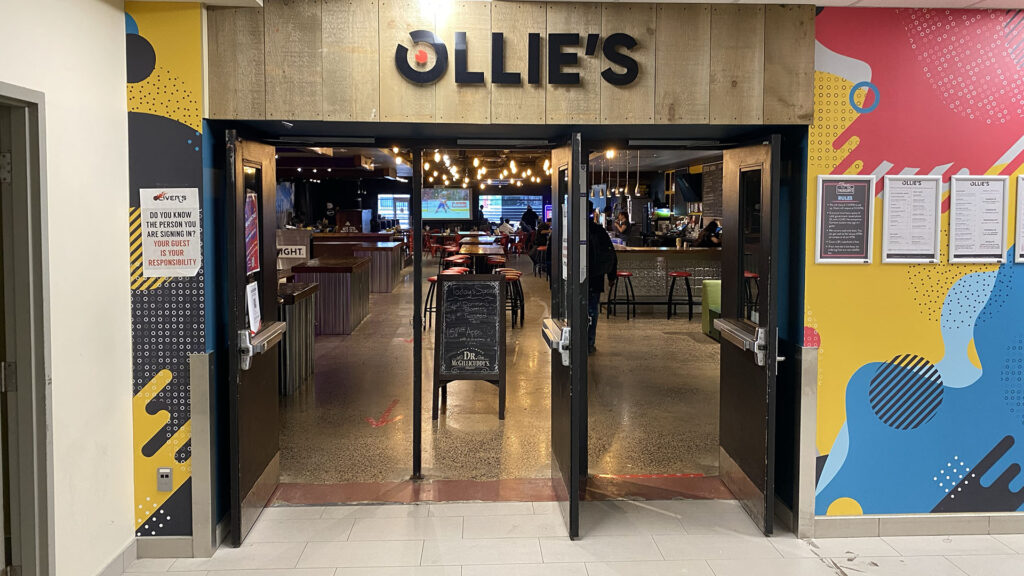
According to a May 2021 study conducted by the Frontiers in Psychology journal, music helped a broad range of age demographics during the pandemic. The ability to listen to music positively affects the autonomous nervous system, which regulates heart rate and blood pressure, and its ability to decrease anxiety and stress.
However, students aged 18-to-29 stand out as one of the demographics most positively impacted by music’s effects during the pandemic, according to a September 2022 study conducted by the National Library of Medicine.
According to Loten, students are also one of the most important demographics for determining the success of any music scene.
“If you want to put your finger on the pulse of any college-age population in the city, just look at how well the live music scene is doing,” Loten said.
The college and university population has a make or break effect on the music scene in any city, explained Loten.
This is in large part due to the younger generation’s ability to constantly adapt to and explore new challenges and trends, said Miguel Filiatrault, the manager of Ollie’s, a pub located on Carleton University’s campus.
“I think that students specifically, they’re a prime demographic for trying new things and listening to different types of music,” Filiatrault said. “They consume a wider variety of music, and I think that for young artists, specifically up-and-coming artists looking to get out there, I just think it’s a more receptive audience.”
According to Filiatrault, since re-opening in September, after being closed for a majority of the pandemic, Ollie’s has made improvements such as adding a permanent stage to its venue. The pub has also begun booking acts for next semester, with the aim of doing at least one show a month.
For a demographic that has been a prime target of COVID-19 related isolation, live music could be a major aid in restoring a sense of community on campus, said Filiatrault.
“It’s just that social interaction around a common interest, it would just take things to the next level, for me, as far as allowing students to meet new people, get more engaged on campus, and even for musicians on campus who maybe haven’t had that opportunity,” Filiatrault said.
For ‘music councillor,’ music has the power to bring the community together
For Jeff Leiper, Ottawa’s so-called “music councillor,” music — and more importantly, live music — is amongst the city’s best hopes for bringing communities together and shifting into a “new normal.”
“Music, it can be a very individual experience, but it can also be an extraordinarily communal experience,” said Leiper, councillor for Ottawa’s Ward 15.
The nickname “music councillor” was given to him by former Ottawa mayor Jim Watson, largely because of Leiper’s tireless championing of Ottawa’s music industry and his rapport with that community.
Ottawa’s push for a more viable music industry demonstrates the importance of music within the fabric of the city. A key development in this push has been the municipal government’s “Music City Strategy.”
Ottawa’s municipal government began work on this strategy in 2018 as part of a five-year initiative to improve the city’s overall music infrastructure and develop city bylaws that are more friendly to artists. Leiper says the city has held true to many of its initial promises.
“We’ve done things like rezoning a lot of the city to allow for music performances, we’ve put sustainability funding into [Ottawa Music Industry Coalition],” Leiper said. “We worked on making sure that music events were required to have sexual assault training.”
Over the last five years, the city has donated more than a hundred thousand dollars to the Ottawa Music Industry Coalition, Leiper said. The coalition is a partnership between artists, music industry workers, venues, businesses and music organizations working to bring broader recognition to Ottawa’s music community.
Despite the praise that the city has received for its attempts at making inroads within the music community, there is still criticism from those who feel the city’s funding doesn’t stretch to all parts of the music world.
Leiper said he accepts this criticism, acknowledging that much of the funding is going to the coalition, which tends to focus on singer-songwriters rather than alternative music.
“Hip hop and urban music, EDM music, jazz, classical, modern classical, you know, these are areas where I think the Ottawa Music Industry Coalition wants to have a bigger scope of involvement and engagement,” he said.
Music helps to remind us of pre-pandemic life
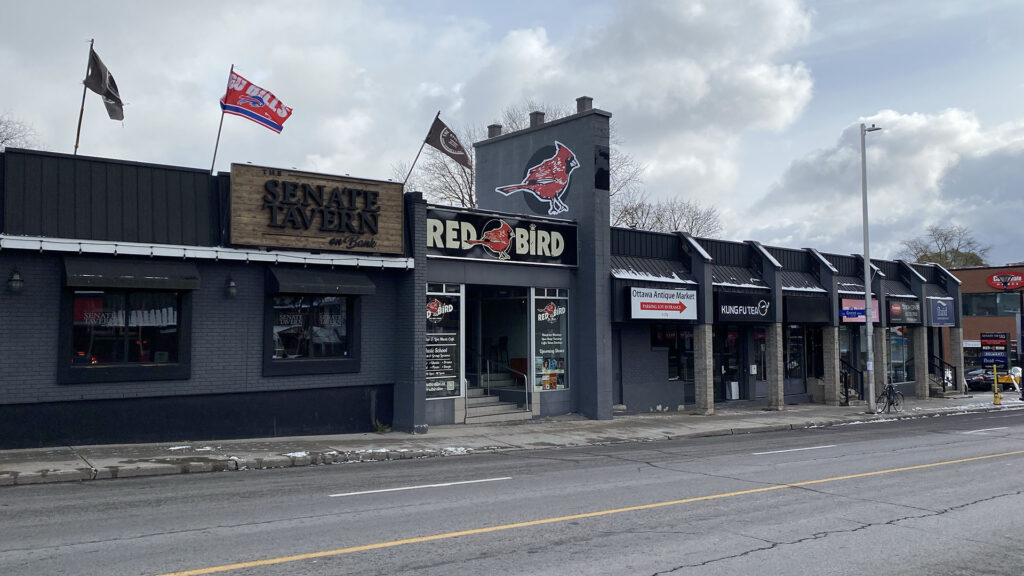
Leiper said he sees live music as essential to reconnecting the various communities of Ottawa, bringing together people from a variety of backgrounds to tell and listen to stories and improve community engagement, big and small.
In a city as diverse and large as Ottawa, music has the potential to remind people of what life was like before the pandemic, said Cass, the owner of Red Bird Live.
“Socially, it’s a really important part of our lives,” Cass said. “It’s like-minded people, usually around the same demographic, sometimes there’s a great deal of diversity, which is even better, and then we all just sort of get out and feel good again.”
Live music provides a visceral experience that allows people to really take in what it feels like to share experiences and emotions as a community that we may have overlooked before the pandemic, Leiper said.
“Those live shows are that opportunity to smell other people’s sweat, and dance, and you know, hear the music at volumes that are probably irresponsible, and just really enjoy it together.”
